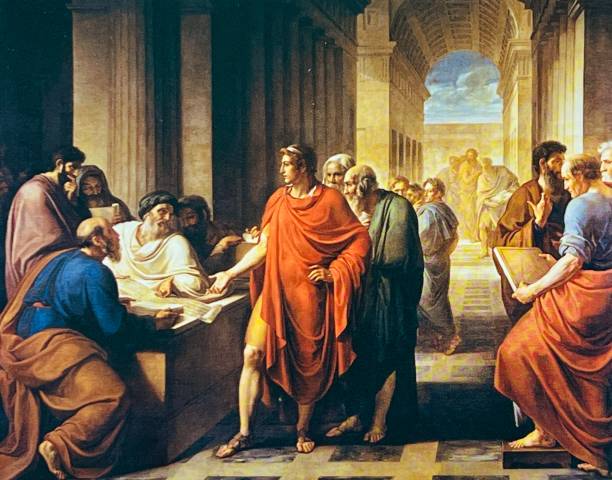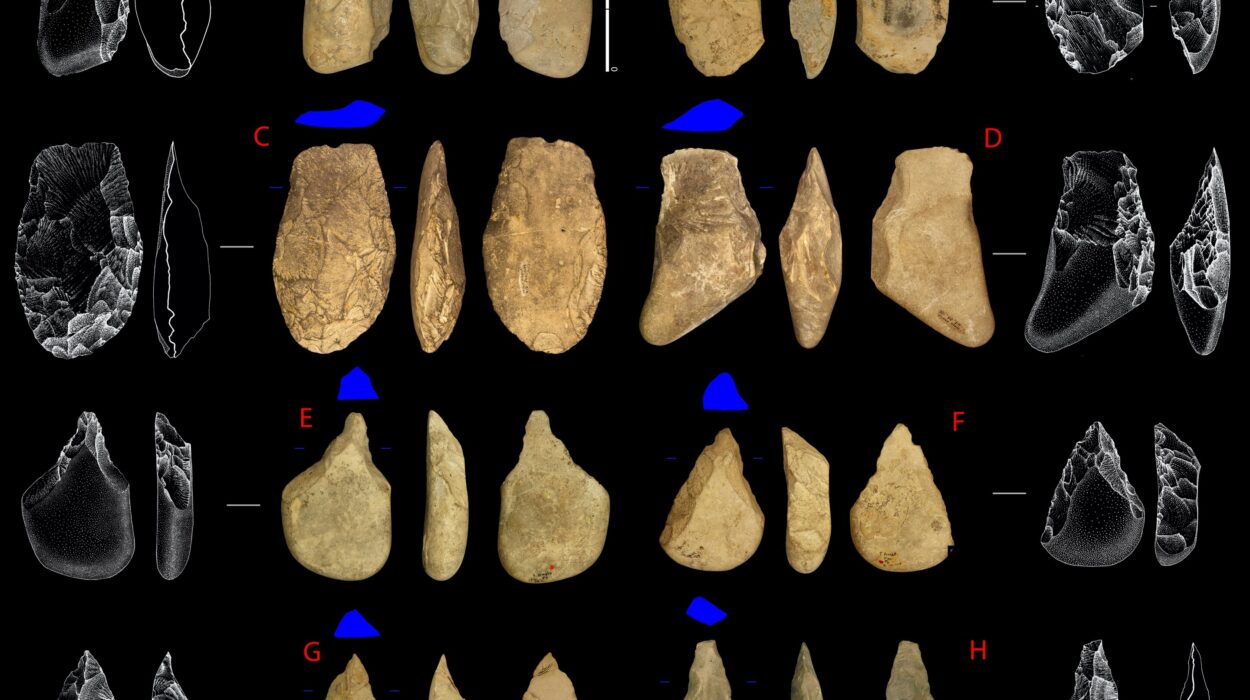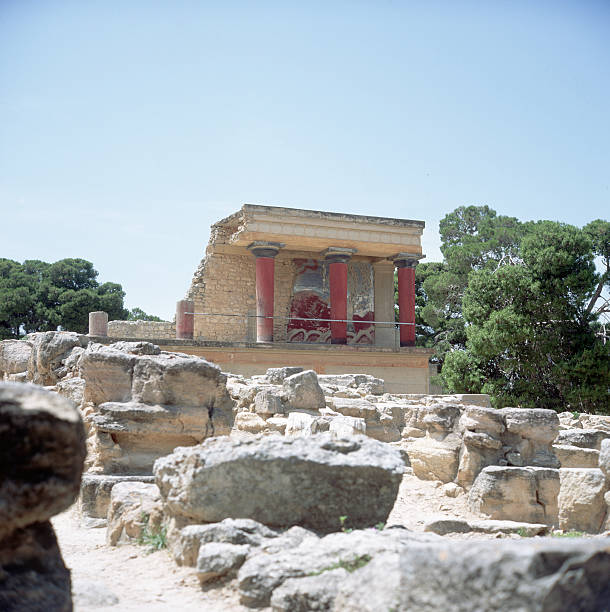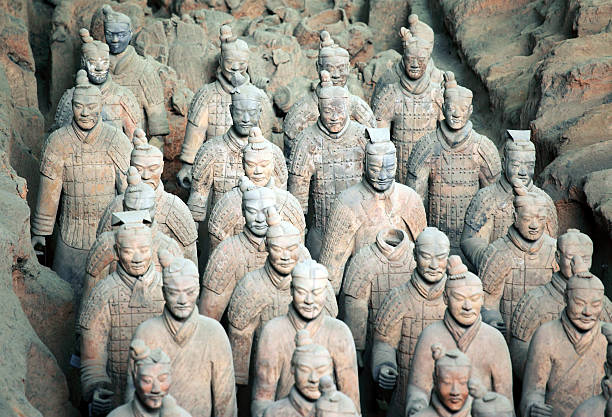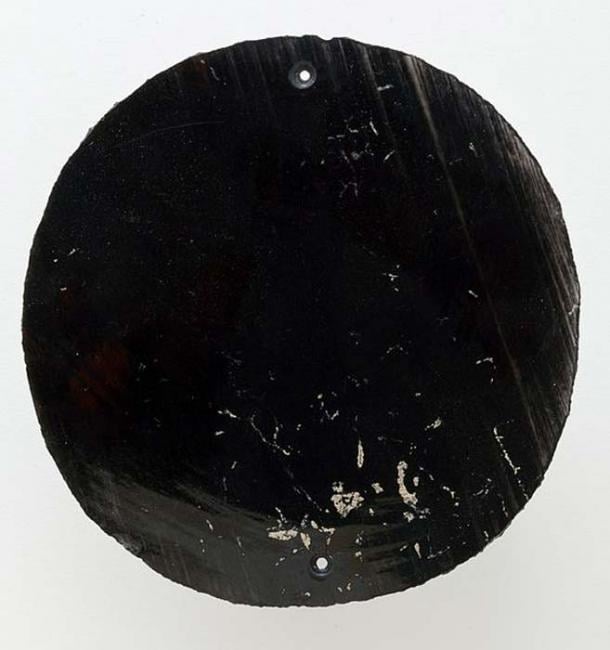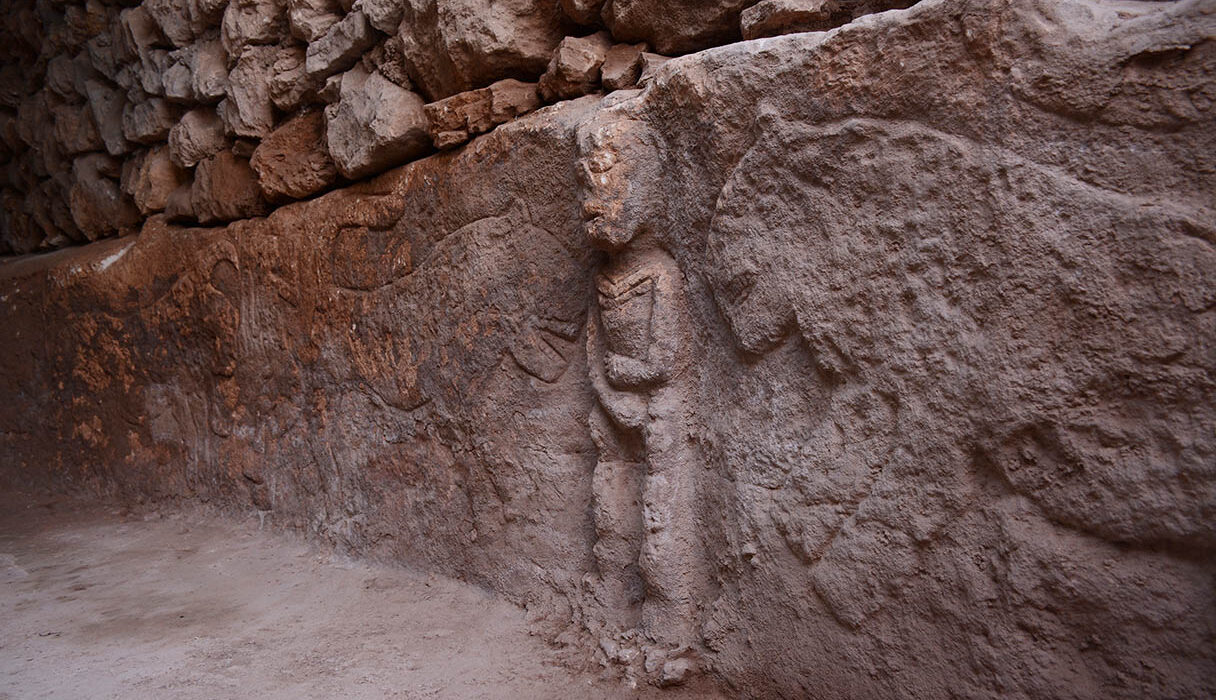Imagine walking into a vast hall where the wisdom of centuries rests upon towering shelves, scroll upon scroll whispering stories of science, philosophy, poetry, and history. The air is thick with ink and papyrus, alive with the murmurs of scholars debating mathematics, astronomy, and medicine. Here, in this imagined place, the sum of human knowledge—gathered from the farthest reaches of the known world—waits to be discovered. This was the dream of the Great Library of Alexandria, one of the most legendary centers of learning in history.
The Library of Alexandria has become less a physical institution and more a symbol—a vision of human ambition to gather, preserve, and understand all that could be known. But it is equally remembered for its tragic fate: the mystery and devastation of its loss. The destruction of the Library stands as one of history’s greatest “what ifs,” a reminder of how fragile knowledge can be when confronted by fire, politics, and time.
The Birth of a Grand Idea
The Library of Alexandria was founded in the Egyptian city of Alexandria, a city that itself was the brainchild of Alexander the Great. Established in 331 BCE, Alexandria was envisioned as a center of culture and power, a city that bridged Greece, Egypt, and the wider Mediterranean world. After Alexander’s death, his general Ptolemy I Soter took control of Egypt and began to shape Alexandria into a beacon of intellectual achievement.
Ptolemy I, and later his successors—especially Ptolemy II Philadelphus—dreamed of creating a repository of knowledge that would rival the vastness of the world itself. They sought not just Greek texts but writings from every culture they encountered. Ships arriving at Alexandria’s bustling harbor were searched, and their manuscripts were copied for the Library. Works from Mesopotamia, India, Persia, and beyond were sought with tireless determination. The Ptolemies wanted nothing less than the complete collection of human thought.
The Library was part of a larger institution known as the Mouseion—a temple dedicated to the Muses, the goddesses of inspiration. The Mouseion was not merely a library but a research center, with lecture halls, meeting rooms, and gardens where scholars could exchange ideas. It was, in many ways, the first true university.
The Treasures Within
What exactly did the Library contain? Here, history blurs into myth. Ancient writers suggest that hundreds of thousands of scrolls were stored there—perhaps 400,000, 700,000, or even more. The numbers vary wildly, and the truth may never be known. Yet even if exaggerated, these estimates hint at the staggering ambition behind the project.
The scrolls likely included the works of Homer, Sophocles, and Aristotle, but also treatises on medicine from India, mathematical insights from Babylon, religious texts from Egypt, and astronomical observations from across the ancient world. There are tantalizing hints that the Library may have contained texts we can only imagine today: lost plays of Euripides, complete works of Sappho, accounts of vanished civilizations, or maps of lands beyond the horizon.
One particularly evocative story claims that the Library sought to house “every book in the world.” Whether true or not, this goal reflects the spirit of Alexandria—an unquenchable thirst for knowledge, regardless of origin.
The Scholars of Alexandria
The Library was not just a storehouse but a living, breathing community of thinkers. Great scholars from across the Mediterranean and beyond came to Alexandria to study and teach. Among them was Euclid, whose Elements became the foundation of geometry for centuries. Herophilos, often called the “father of anatomy,” performed dissections in Alexandria and made groundbreaking discoveries about the nervous system.
Eratosthenes, the brilliant geographer, used the Library’s resources to calculate the circumference of the Earth with astonishing accuracy—within a few hundred miles of the actual figure. He also devised a system of latitude and longitude, laying the groundwork for modern cartography.
Another luminary was Archimedes, who, though not a permanent resident, likely interacted with Alexandrian scholars. The poet Callimachus compiled the Pinakes, an enormous catalog of the Library’s holdings, which may be considered the first library catalog in history. His work suggests that the Library was not chaotic but highly organized, with scrolls grouped by subject and author.
The intellectual energy of Alexandria was magnetic. It drew thinkers of philosophy, science, medicine, and literature into dialogue, creating a melting pot of ideas that influenced civilizations far beyond Egypt’s borders.
The Fragility of Knowledge
But for all its brilliance, the Library of Alexandria was also profoundly vulnerable. Knowledge stored on fragile papyrus could be lost in an instant—by fire, decay, or neglect. And the Library’s very greatness made it a target.
The story of its destruction has become one of history’s most enduring legends, but frustratingly, it is also one of its most elusive. The Library may not have fallen in a single catastrophic blaze but rather through a series of disasters spread across centuries.
The First Flames: Julius Caesar’s Siege
One of the earliest accounts of destruction comes from 48 BCE, when Julius Caesar found himself besieged in Alexandria during a civil war. To block the enemy fleet, Caesar ordered the burning of ships in the harbor. The flames, according to some historians, spread from the docks to parts of the city—and possibly to the Library itself. Ancient writers disagree on the extent of the damage. Some claim that tens of thousands of scrolls were lost; others argue the main collection survived.
Even if the Library survived Caesar’s fire, the event stands as a warning: the treasures of knowledge, no matter how grand, could be undone by the chaos of human conflict.
The Decline and the Later Destructions
The Library may have suffered further during the reign of Emperor Aurelian in the 3rd century CE, when the city was attacked during a rebellion. Later, in 391 CE, Alexandria’s Serapeum—a temple associated with the Library and perhaps housing part of its collection—was destroyed by decree of the Roman Emperor Theodosius I, who sought to suppress pagan institutions.
The final blow may have come in the 7th century CE, when Alexandria was conquered by Muslim forces under Caliph Omar. According to medieval accounts, the Library’s remaining scrolls were burned, used as fuel for the city’s bathhouses. Yet many modern historians doubt this story, seeing it as a legend rather than fact.
What is clear is that by the Middle Ages, the Great Library no longer existed. Its treasures had vanished, dispersed, destroyed, or simply forgotten. The greatest collection of knowledge the ancient world had ever known was gone.
What Was Truly Lost?
The destruction of the Library of Alexandria is often portrayed as an almost apocalyptic event for human knowledge. While this may be romanticized, there is truth in the lament. Countless works of literature, science, and philosophy from antiquity are known only by name—or not at all—because they were lost in this and other catastrophes.
We know of hundreds of lost plays, epic poems, and treatises that might have reshaped our understanding of the ancient world. Entire schools of thought, unique cultural traditions, and scientific discoveries could have disappeared with those fragile scrolls. What cures, inventions, or insights might humanity have discovered centuries earlier, had the Library survived? The question is haunting because it has no answer.
Knowledge Reborn
And yet, the story of the Library is not purely one of despair. Much of ancient knowledge survived through other means. Texts were preserved in monasteries, copied by scribes, and translated by scholars in the Islamic Golden Age. Greek and Roman writings resurfaced in the Renaissance, fueling revolutions in science and art.
The dream of Alexandria—to gather and preserve knowledge—was not extinguished but reborn in different forms: in the libraries of Baghdad, in the universities of medieval Europe, and in the digital archives of today. The Internet, in many ways, is a modern descendant of that dream, a global repository of information accessible to anyone.
The Symbol of Alexandria
The Library of Alexandria endures in our imagination not simply because of what it was, but because of what it represented: the human desire to know, to understand, to collect the fragments of truth scattered across time and space. Its loss is a cautionary tale of fragility, but also a rallying cry.
It reminds us that knowledge is not indestructible—that it must be preserved, protected, and shared. Every burned scroll, every lost manuscript, underscores the urgency of safeguarding the wisdom we have today. The Library of Alexandria may be gone, but its spirit lives on in every effort to preserve human knowledge for future generations.
The Lessons of the Lost Library
The destruction of the Library teaches us three enduring lessons. First, that knowledge is fragile—without care, it can vanish. Second, that knowledge is universal—worth gathering not only from our culture but from all cultures, for every perspective enriches the whole. And third, that knowledge is powerful—capable of shaping societies, inspiring revolutions, and advancing human progress.
In an age where information is at our fingertips, the story of Alexandria is both comforting and unsettling. Comforting, because we have surpassed its ambition—digitally storing more information than the ancient world could have dreamed. Unsettling, because even now, knowledge is vulnerable: to censorship, to digital decay, to the simple indifference of forgetting.
Conclusion: The Eternal Flame of Learning
The Great Library of Alexandria may be gone, its scrolls turned to ash, its halls reduced to dust. Yet its story continues to ignite imagination. It stands as a monument not to failure, but to aspiration—the audacity of a civilization that dreamed of holding the world’s wisdom in its hands.
In every library built, every archive preserved, every digital database created, the spirit of Alexandria flickers back to life. The flames that destroyed it could not extinguish the deeper fire—the fire of curiosity, of discovery, of learning.
The lost Library of Alexandria is a reminder that knowledge is the most precious treasure humanity possesses. It is fragile, yes, but also resilient. Destroyed once, reborn many times, it continues to guide us. And perhaps that is the truest legacy of Alexandria: not the scrolls it lost, but the eternal flame of learning it lit in human hearts.
